Despite a slight delay to the end of the lockdown restrictions, now is the ideal time to consider the practicalities of getting back to business, as well as opportunities for growth.
In this article we discuss some of the key considerations and challenges when planning a course of action for your business to bounce back to post lockdown trading.
1. Are you ready to deal with the practicalities of reopening?
 First and foremost, there are the basic housekeeping tasks that you may need to complete.
First and foremost, there are the basic housekeeping tasks that you may need to complete.
- If you will be un-furloughing staff you will need to plan ahead and confirm to them in writing. Furthermore, consider whether their role remains the same, or whether there will be additional duties they will need to complete to cover any gaps in your team or new requirements.
- Continue to stay up-to-date with government announcements. Whether there are further delays to the end of COVID-19 restrictions or further government support announced to support businesses, it will be key to stay on track of announcements so you are able to effectively manage your return to business.
- Consider and update your flexible working policy. Hybrid working (from home and the workplace) looks set to remain for many businesses where this is possible. Ensure that your flexible working policy is up-to-date and communicated to staff. This also brings further questions for businesses on whether they should reduce the size of their workplace to reduce unnecessary costs. In a recent survey of the UK’s 258 largest firms, half said that they were planning to reduce their office space, with a third expecting reductions of more than 30%. With the coronavirus crisis driving a shift to remote working, just 10% of those polled said that they expect the number of employees working in the office will return to pre-pandemic levels, with around half of the executives saying employees are likely to work virtually two to three days a week.
- Review or update other working policies and make sure these are well communicated with your team. How will you respond to an employee who develops COVID-19 symptoms? Are you keeping track of employees who are vaccinated and will their return to the workplace be prioritised? What is your policy for employees who travel abroad? What is your policy for face to face meetings? How will you deal with employees who are anxious about coming back? These are all questions you may need to address.
- Don’t forget to update your communications such as signage, telephone and website messages, out-of-office messages or email signatures regarding your homeworking arrangements, opening times or working practices as they change over the coming weeks.
2. Do you need additional financing to support your plans?
 Whether you are targeting growth or just getting back to normal, it may be that you require additional financing to assist.
Whether you are targeting growth or just getting back to normal, it may be that you require additional financing to assist.
Furthermore, with the Coronavirus Job Retention Scheme tapering off (additional contributions will be made by businesses from July until the scheme ends in September), as well as deferred tax bills becoming due and business rates relief reducing and ending, businesses may need to access additional financing to support their cash flow.
- The Recovery Loan Scheme is open until 31 December 2021 and can be used even if you have already taken a Bounce Back and/or Coronavirus Business Interruption Loan. You can see more details on the Recovery Loan Scheme here.
- Restart Grants are being provided in England of up to £6,000 per premises for non-essential retail businesses and up to £18,000 per premises for hospitality, accommodation, leisure, personal care and gym businesses. Local authorities in England will also be given an extra £425m to distribute to businesses that are not eligible for the grant but have still suffered due to Covid-19. As with previous Covid-19 grants, you will be paid through your local council. You can find out more about Restart Grants and how to apply here.
- It is now your last chance to ease cashflow pressures by spreading your VAT deferral over monthly repayments. Businesses that deferred VAT payments last year have until 21 June 2021 to join online and pay in monthly instalments under the VAT Deferral New Payment Scheme. The online portal for the new payment scheme will close on 21 June 2021. You can find more information on this here.
- If you are taking on staff you may wish to consider the £1,000 bonus for taking on trainees before the end of July or kickstart funding for larger employers, subject to your eligibility.
- Don’t forget to factor in any repayments of existing loan schemes. For those who took out Bounce Back and/or Coronavirus Business Interruption Loans, they will need to begin making repayments depending on when these agreements were entered into. This should be factored into your cash flow planning to ensure it does not impact the availability of your working capital.
3. Do you have the resources to kick-start new projects and take advantage of new growth opportunities?
 Many sectors, in particular retail and hospitality, are seeing a hiring crisis with businesses struggling to fill roles.
Many sectors, in particular retail and hospitality, are seeing a hiring crisis with businesses struggling to fill roles.
Businesses may need to consider training opportunities to up-skill staff and review their employee benefits and remuneration packages to ensure that they remain competitive in the employment market.
There are also shortages in some material and components which is impacting sectors such as construction and manufacturing. Although figures already indicate rapid expansion in these sectors, there are severe challenges with materials availability and increasing costs.
We have been advising clients to build strong relationships with material suppliers, and in particular, to make sure that you are paying promptly and on time – after all, when materials are in short supply it will be the best, fastest paying customers who are likely to be top of the pile to receive deliveries. Also, planning ahead for jobs to allow bulk buying opportunities may reduce supply delays and unit costs.
4. And finally, tell the world you are ready for business
 With your plans in place and team ready to go it is time to put the message out there that you are ready to offer a great customer service.
With your plans in place and team ready to go it is time to put the message out there that you are ready to offer a great customer service.
- Is your branding still inline with your business values and unique selling proposition? Now might be a good time to review and reinvigorate your marketing messages and customer touch-points.
- Have you told your existing customers about your increased capacity or new services? If your target is to grow you probably want to keep hold of your existing customers, especially those who began using you as shopping habits changed during the COVID-19 period. Perhaps there are loyalty schemes or promotions that you could consider.
- What channels are you using to market your business to new customers? Consider whether you are reaching your target audience effectively or whether you need to consider new channels or invest more in existing channels such as online pay-per-click, social media, direct mail or advertising.
- Are your team ready and motivated to make your plans happen. Inspire them in confidence and get them on board with your plans.
We are wishing all our clients and contacts the very best as we all hopefully return to business as normal. If we can be of any assistance, please do contact us.

Award-winning chartered accountants offering tax, audit and advisory services.


